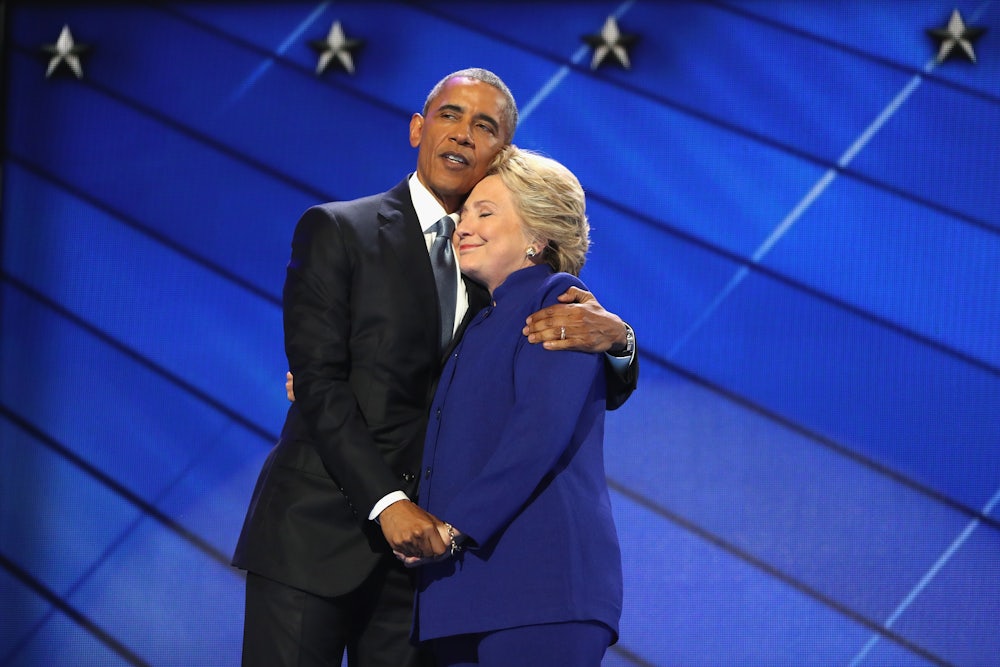The prevalent theme of the DNC on Wednesday was winning over white, college-educated Republican voters. For two hours, America’s dads Joe Biden, Tim Kaine, and Barack Obama and its aloof rich uncle Michael Bloomberg relentlessly made the case that Trumpism was not Republicanism, but a tumor infecting a once noble Republican Party and that the only way for Republicans to get rid of the tumor was to vote for Hillary Clinton. Obama’s speech was the most notable because he snatched the shining city on the hill championship belt away from the Republicans. He stared down Republican voters and told them, “If you voted for Reagan because he believed in America, then you cannot vote for Donald Trump, who does not.”
“What we heard in Cleveland last week wasn’t particularly Republican and it sure wasn’t conservative. What we heard was a deeply pessimistic vision of a country where we turn against each other and turn away from the rest of the world. There were no serious solutions to pressing problems, just the fanning of resentment and blame and anger and hate. And that is not the America I know.”
Obama did something I never thought I’d see in my lifetime on Wednesday: He impressed a lot of Republicans. The Washington Post’s Greg Sargent makes a compelling case for what this rhetorical tack means for the election, and for the future of the two-party system:
Some Democrats believe that the GOP’s nomination of Trump has created an opening to make deeper-than-usual inroads among GOP-aligned constituencies, such as white and suburban women and college-educated whites. More broadly, they see a chance to deepen the long-term contrast—in the minds of a new, coming-of-age generation of voters—between a Republican Party tattooed by Trump’s recklessness, ignorance, contempt for policy, pathologically abusive tendencies, and reactionary ethno-nationalism, and a Democratic Party increasingly characterized by competence, maturity, and an openness to culturally and demographically diversifying America.
In a close election, a #NeverTrump strategy could pay dividends for the Democrats, but it’s also a short-term strategy: It gives Republicans an out to not vote for Trump, but not much else. It’s a hall pass, in other words, and one that only applies to the presidential election—these voters could vote for Trump, and then vote for congressional Republicans, all the way down the ballot. Hillary would win the election, but she’ll be guaranteed gridlock.
What Democrats could have done instead would have been riskier, but far more strategic: They could have made the case that even decidedly non-radical figures like Norman Ornstein and Ezra Klein have made a version of—that Donald Trump is, in fact, the Republican Party, and that even if he’s a bit more extreme and a bit more racist, he is a logical outcome of the party’s momentous shift to the right over the last 20 (and certainly last eight) years.
This is a case Obama has resisted making, yet Trump’s ascent within the party is undeniable proof. It’s false equivalence that has allowed the Republicans to succeed as much as they have: the party of Lincoln has become a party of demagoguery, racism, and xenophobia. The Democrats had a chance to shape this election in terms grander than #NeverTrump. That they chose not to might prove to be a major strategic error.
